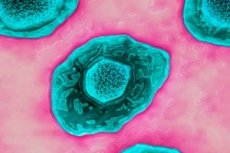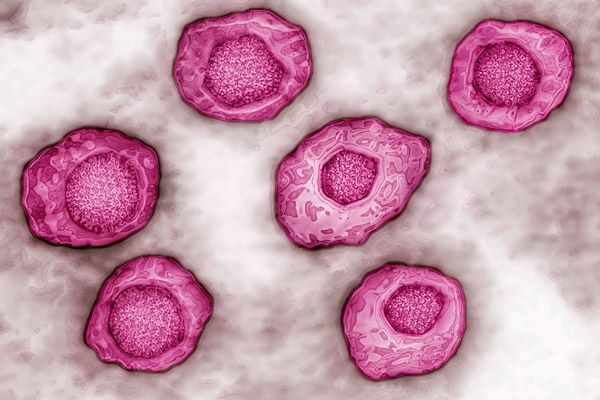New publications
A new herpes drug has been discovered
Last reviewed: 02.07.2025

All iLive content is medically reviewed or fact checked to ensure as much factual accuracy as possible.
We have strict sourcing guidelines and only link to reputable media sites, academic research institutions and, whenever possible, medically peer reviewed studies. Note that the numbers in parentheses ([1], [2], etc.) are clickable links to these studies.
If you feel that any of our content is inaccurate, out-of-date, or otherwise questionable, please select it and press Ctrl + Enter.

At one of the renowned US research universities, located in the state of Utah, a group of virologists accidentally discovered that a heart drug helps to cope with the most common herpes viruses.
Currently, there are no effective drugs that can completely destroy the virus in the body, and after infection, a person becomes a source of infection.
Spironolactone is a potassium-sparing diuretic and has been used in medical practice for over half a century. Studies have shown that spironolactone effectively suppresses the growth of herpes viruses.
According to the head of the research group Sankara Swaminathan, such fundamental studies clearly show that some things cannot be detected in the usual way. According to the scientists, they managed to find a possible solution to the herpes problem, which worries thousands of people. As a rule, observations of how different drugs affect viruses and bacteria sometimes lead to unexpected results, and this is what happened now.
Infection with the herpes virus occurs unnoticed by a person. The most common among the herpesvirus family is the Epstein-Barr virus, it is transmitted with saliva, in some cases by blood transfusion. Most patients tolerate the disease well, the virus practically does not cause any characteristic symptoms, complications of the infection are a great danger to human health and life - in some cases, the virus can provoke malignant diseases of lymphoid tissue, infectious mononucleosis, multiple sclerosis, some types of cancer.
There is currently no effective vaccine against the Epstein-Barr virus, according to scientists, the main problem is that the protein structure of the virus has significant differences at different stages of its life. For treatment, mainly drugs of the cyclovir group (valaciclovir, ganciclovir) are used.

Dr. Swaminathan and his colleagues noted that herpes viruses are capable of developing resistance to drugs, it is only a matter of time, and now the efforts of many specialists are aimed at finding new drugs that could replace cyclovir.
Swaminathan's group was experimenting on cells infected with the herpes virus and accidentally discovered an unusual property of spironolactone (in modern medicine, this drug is used to lower blood pressure and reduce fluid in the body accumulated due to heart problems). Further work in this direction showed that spironolactone can suppress the growth of the virus inside the cells, which ultimately stops the spread of infection throughout the body.
Scientists noted that the antiviral effect of spironolactone is not associated with its effect on the heart and kidneys, so it is theoretically possible to create a similar drug that will suppress the reproduction of herpes and not affect other organs and systems. Sankara Swaminathan also emphasized that the created analogs of spironolactone will help treat not only the Epstein-Barr virus, but also other types of herpes, including the well-known "cold sore" on the lips.

 [
[